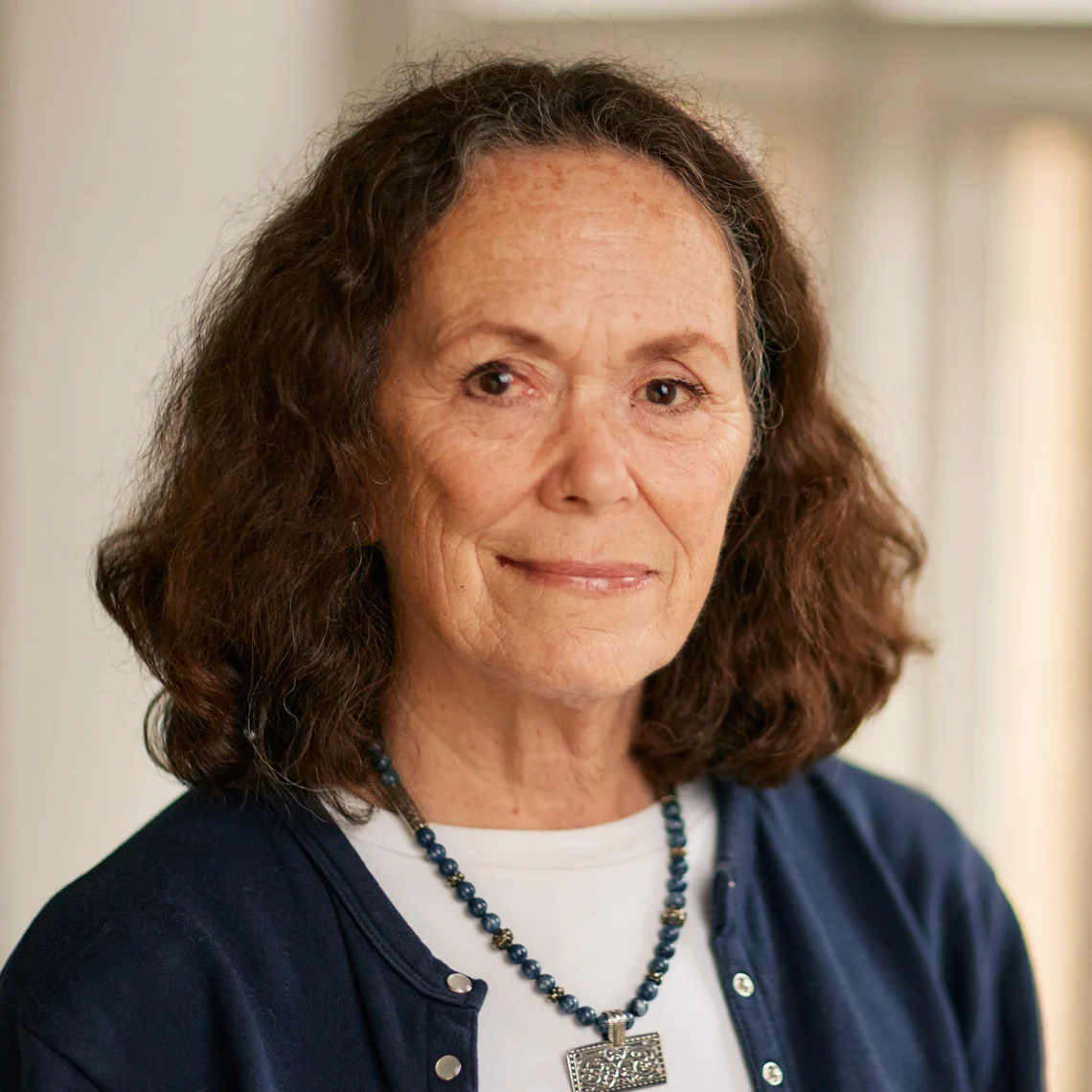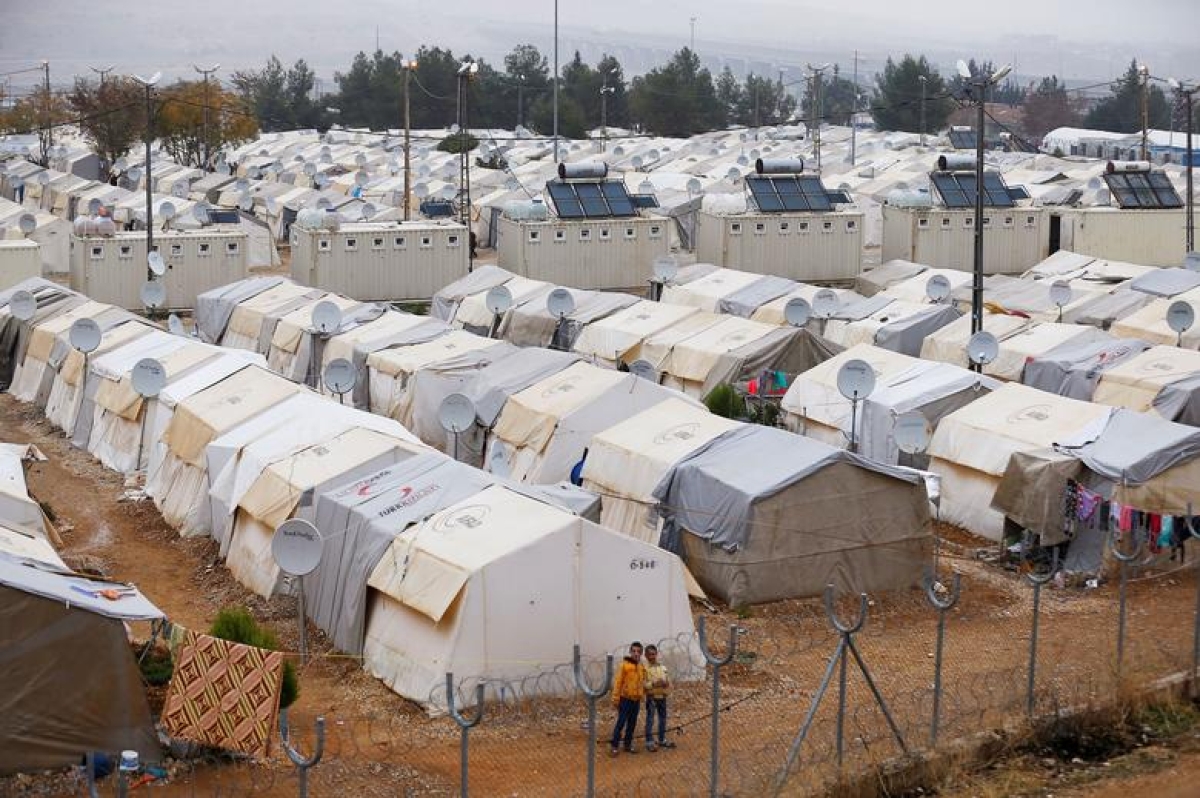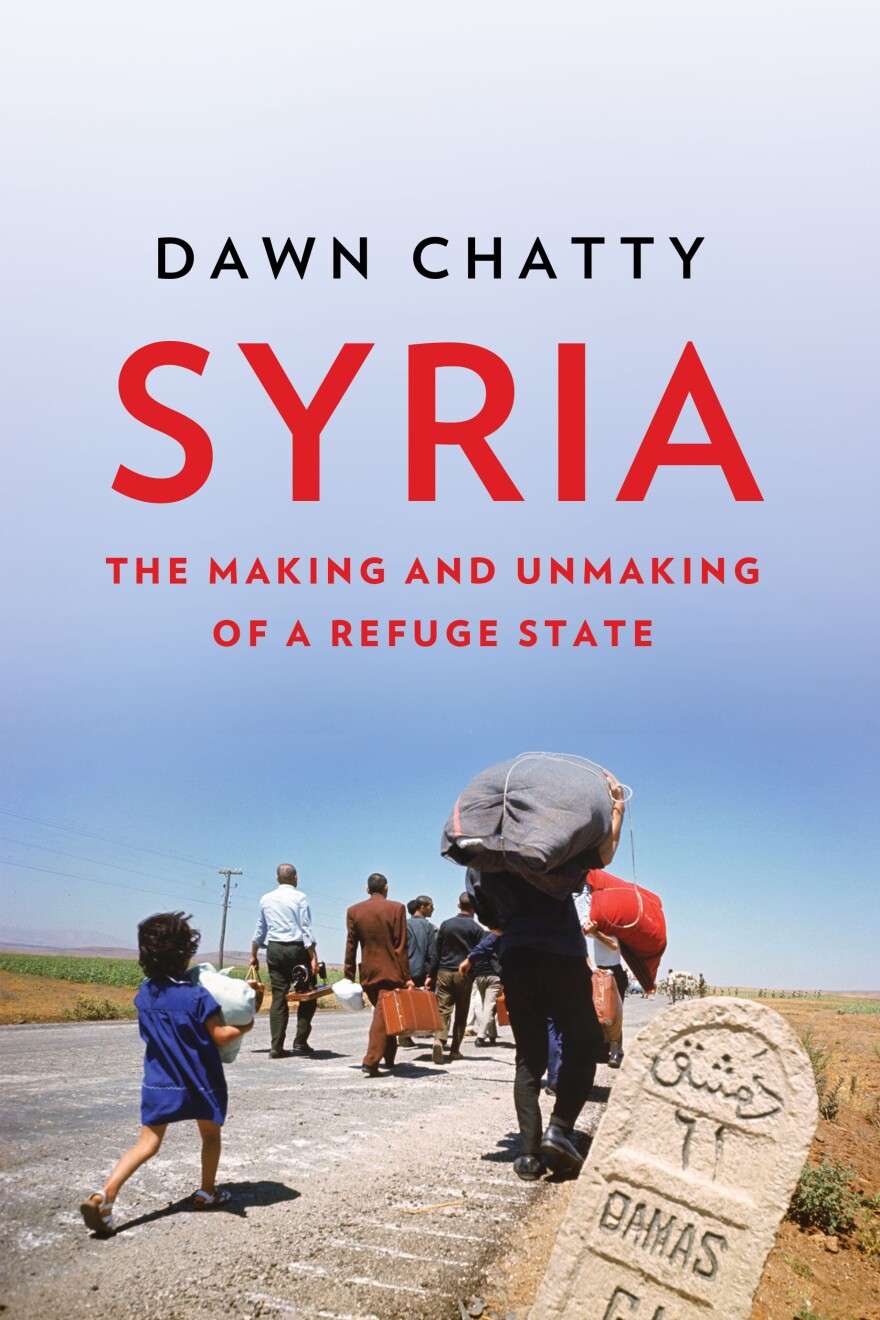
Earlier this year Levant 24 was fortunate to be able to speak with Dawn Chatty, Emerita Professor of Anthropology and Forced Migration, PhD in Social Anthropology from the University of Cambridge. Dr. Chatty has held academic positions at prestigious institutions, including the University of Oxford, where she directed the Refugee Studies Centre. Dr. Chatty’s research explores the social, economic, and political dimensions of the Syrian refugee crisis, emphasizing the importance of understanding their experiences and perspectives. She has authored the books “Displacement and Dispossession in the Modern Middle East” and “Syria: The Making and Unmaking of a Refuge State.” Dr. Chatty’s body of work has been key in raising public awareness about the challenges faced by refugees, especially those from Syria and the Middle East.
You have now more than half the population of Syria that is either displaced across an international border or displaced within the country
L24: In your view what are the primary causes for the current Syrian refugee and IDP crises?
“I think it’s very clear that it is what’s called ‘al-ahdath,’ the events, the crisis, the conflict, in Syria which emerged, and was developing before 2011, say perhaps 2010, but maybe even a little bit earlier for a number of reasons.
It was the authoritarian state’s response to peaceful demonstrations beginning in Daraa, in the south of Syria, and then spreading to the cities such as Damascus, Homs, Hama, and even Aleppo. These demonstrations very, very quickly turned violent, the Syrian government forces and militias associated with the government such as the Shabiha firing on peaceful demonstrators. Eventually, a reaction was to respond to this deadly force by the government, by many of those who were demonstrating.
The internally displaced is a normal effect of these kinds of armed conflicts. When people’s homes and neighborhoods are bombed, or disturbances are very, very great they flee, but they don’t necessarily flee across an international border. They flee, sometimes, a number of times, within the country until they realize they have no hope and then they cross borders and become displaced. I think ‘displaced’ is the preferred term that Syrians have suggested applies to them, rather than using the term ‘refugee,’ whether it’s a legal definition or not.
Therefore, you have now more than half the population of Syria that is either displaced across an international border or displaced within the country. Maybe something like six to seven million are displaced across international borders and somewhere in the region of five to six million are displaced away from their homes over these past 11-12 years.”
L24: How credible are the accusations that the pattern of forced displacement are attempts at ethnic cleansing and enforced demographic change? And what implications might this have in regards to international humanitarian law?
“There certainly is evidence, so the accusation is probably based on the fact that a very large number of those displaced, although not only, but a very large number of those displaced are Syrian Sunni Muslims, these are the areas where there has been the most armed conflict, so it’s mainly Sunni Muslims who have fled, although not all. There have been Christian Syrians who have fled as well, especially from the areas of the northeast of Syria, the Assyrian, but by and large, it’s been mainly Sunni Muslim.
It also makes some sense as prior to 2010, 2011 maybe 80% of the population of Syria, or 75% were Sunni Muslim. The Shia Muslims were really a minority, Christians were a minority, so it can be easily argued that it’s the Sunni Muslims who have been – if not specifically targeted – then most affected.

What I mean by that is: that those who have been ‘voluntarily’ pushed back to Syria (Lebanon, for example), we know from the anecdotal evidence, is that in many cases the men in the family, between the ages of 17, 18 and up to 45-50 have been taken away for ‘questioning’ upon their return, and many have then disappeared.
Which is to say that the internal security elements of Syria, the mukhabarat (intelligence) the many, many different mukhabarat are still operating in such a way that they are showing that they are suspicious of anybody who fled the country, often labeling them as ‘traitors’ because they fled so that when they come back, they are being brought in for questioning.
Of course, this is all contrary to international humanitarian law, so yes, these accusations are credible, and I hope that we see someday that the government is forced to provide a safe return if it is the same government that we have today.”
L24: Practically speaking, whether through legal recourse, intervention, “reconciliation” or other means, how feasible is it that displaced residents will be able to eventually return and regain their land and property?
“Obviously, it’s feasible, but how feasible is another question, because the government has lain down a series of laws that require those who’ve fled, who’ve left their property looking for safety, depending upon which law you follow, in some cases, they have one year, in order to come back to prove, to show documents, that this particular property belongs to them, etc.
But it seems obvious to many of us outside of Syria that the government has plans to take over a lot of the property held privately, by individual Syrians, in order to build sort of flashy shopping malls, new big office buildings, etc. So even with efforts to regain property, some people may find that under the principle internationally of ‘eminent domain,’the state can force people to sell their land, for example, because they’re going to put a road in or build whatever.

A great deal depends upon how much longer, I believe, the Syrian government has the support of international backers such as Iran and Russia. If these backers are weakened in some way, then it may be that the Syrian government will have to bow to international pressure to be less greedy in what I am going to call the extension of the kind of ‘war economy’ and ‘crony Neo-liberalism’ that has marked the country for the last two decades.”
L24: Do you think there is an actionable practical and just solution for the issue of displaced Syrians, given the current political and economic climate?
“To be honest, there may be an actionable, practical solution but I’m not sure that you could call it just. Let me put it another way, I think – my reading of Bashar al-Assad, that he is a person, and perhaps all those people around him, who is not prepared to compromise. He does not understand that a negotiated settlement means comprises on both parties.
There were times at the beginning, particularly earlier in the first decade of the crisis where some compromise on his part may have resulted in ending the conflict. But it seems as though his idea of negotiation is just whatever it is that he and his colleagues want.
I think that maybe in 2014, or 2015, it might have been different but once he had the full support and backing of Russia he was not prepared to compromise. So, any kind of actionable, practical, or just solutions is ongoing to require the weakening of his international backers – as I said earlier.
If Iran becomes more mired in dealing with its own internal issues with all the demonstrations taking place in Iran with the growing sense of injustices that the Iranian people are expressing in terms of the religious autocracy and if Russia and its continuing loss of numbers and figures in Ukraine withdraws some of its support to Syria, then perhaps Assad will be forced to implement some kind of actionable solution, how just is another issue.
I have great doubts that many people will succeed in getting to register and re-register their property particularly if it’s in areas that the Syrian government wants to develop these sorts of ‘prestige’ projects. In terms of showing the world how it is reconstructing Syria.
So I think that the temporary just solution is for a greater ‘secondary migration’ of Syrians, particularly in Lebanon, in Jordan, perhaps in Turkey, for those to be able to find temporary protection, maybe a little bit further away, with more support from the wealthy western powers.
And I say temporary protection, I’m not saying refugee status, being allowed to live and work elsewhere as a diasporic community until such a time as it is safe to return to Syria to rebuild their lives. So it’s not very easy to find a way forward at this present time, but I am an optimist. I think things will change.
I think that the Assad government is going to have to do a lot of compromising, it is going to have to compromise with the Kurds in the north, with some kind of a federated state. Once it does that there will have to be negotiations to bring some of the more radical fighting groups under control and into government. So we have to have some optimism for the future, I see the glass as always half-full rather than half-empty.”









